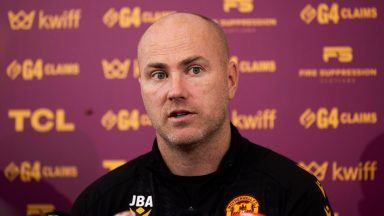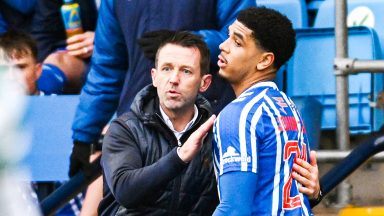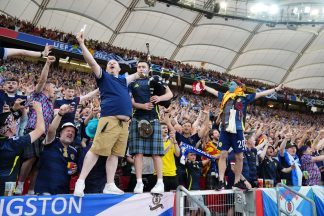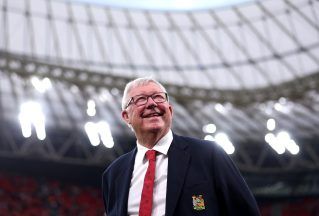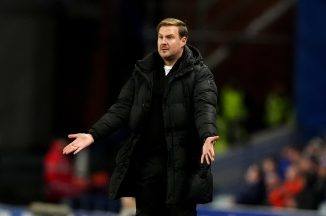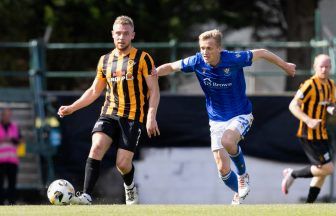Ange Postecoglou is the new Celtic manager and questions about Howe are no longer relevant when it comes to who’s succeeding Neil Lennon.
More than 100 days after Lennon left with the club’s would-be historic season in tatters, the vacancy has been filled, though not by one of the early favourites.
In the days after the Northern Irishman quit, odds shifted, tumbled and plunged on a number of different managers with Rafa Benitez, Roy Keane, Lucien Favre, Paul Lambert, Enzo Maresca and Chris Wilder all near the top of the betting at one time or another.
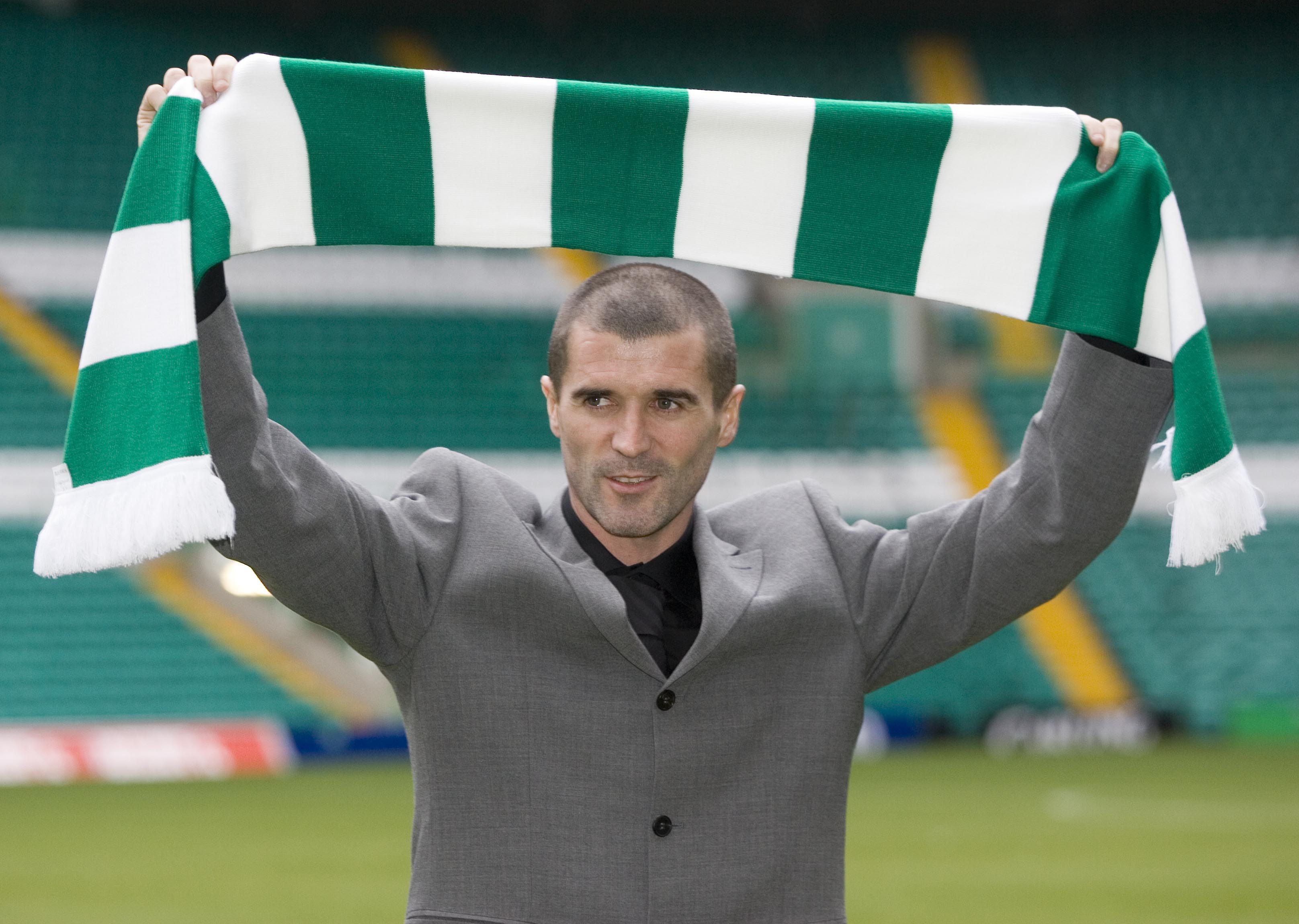 SNS Group
SNS GroupAfter the dust settled, it became clear that Celtic had found their man. Eddie Howe was up for the challenge of taking on a resurgent Rangers, but didn’t want to move until the summer. John Kennedy was saddled with the task of guiding a deflated squad through to the end of the season, and answering questions about Howe on a weekly basis.
In the background, as fans became more agitated with every passing day without an announcement, Celtic and Howe worked on a deal, and when everyone assumed the new boss was signed, sealed and ready to be delivered… the deal collapsed.

Cue fury from the support, and no doubt at least some panic at Celtic Park. Howe had failed to secure the backroom staff he wanted, Celtic had failed to get their man.
It didn’t take long for news to emerge of a move to land Postecoglou. The Greek-Australian doesn’t have any notable background in European football, so scepticism was in plentiful supply from the off, added to the clear knowledge that this was Plan B at best.
‘It’s pretty surreal, mate’
It was a surprising turn in a story that had seemed predictable since March. Postecoglou’s first words in his first interview on Celtic’s club TV channel probably summed it up: “It’s pretty surreal, mate.”
Outgoing chief executive Peter Lawwell said after the appointment that “Ange is a manager we have known about for a number of years and someone who has been prominent in our thoughts for some time”.
Intended to play down any idea that this was a knee-jerk appointment, it underlined the fact that Postecoglou hadn’t been considered the ideal candidate, but was now the best available.
Who is Postecoglou?
So the former Australia boss comes to Glasgow with a point to prove, and most in Scottish football will be forming or reshaping their opinion with every move he makes.
Warnings that Postecoglou will be Celtic’s Pedro Caixinha seem well wide of the mark, while those who point at his record on the other side of the world and claim he’s a revolutionary who just needs an opportunity will be hoping that the intensity of football in Glasgow isn’t too much of a culture shock after the relative comfort of Yokohama, Melbourne and Brisbane.

What’s not up for debate is that Postecoglou arrives fully formed as a manager; 55-years-old and with a quarter-century of coaching behind him. It’s not a punt on someone early in their career. Instead, Celtic are gambling on the methods that brought success in another environment.
There’s no doubt he has had success in his career, and not just in one purple patch. Championship glory at South Melbourne was followed by a spell at Brisbane Roar that brought an A-League title and a long unbeaten run. His time in international football saw him take Australia to the World Cup and also lift the Asian Cup. A switch to a new environment brought more silverware with a J-League title in 2019.
It’s not just the titles that have built Postecoglou’s reputation. He’s a manager who is said to be wedded to a philosophy of expansive attacking football, and someone who demands the highest standards from everyone who works under him.
Former Scotland boss Andy Roxburgh, now technical director at the Asian Football Federation, described him as “strong, clever and progressive”. Tom Rogic compared his international boss to Brendan Rodgers, saying they shared a positive and intense attitude to work.
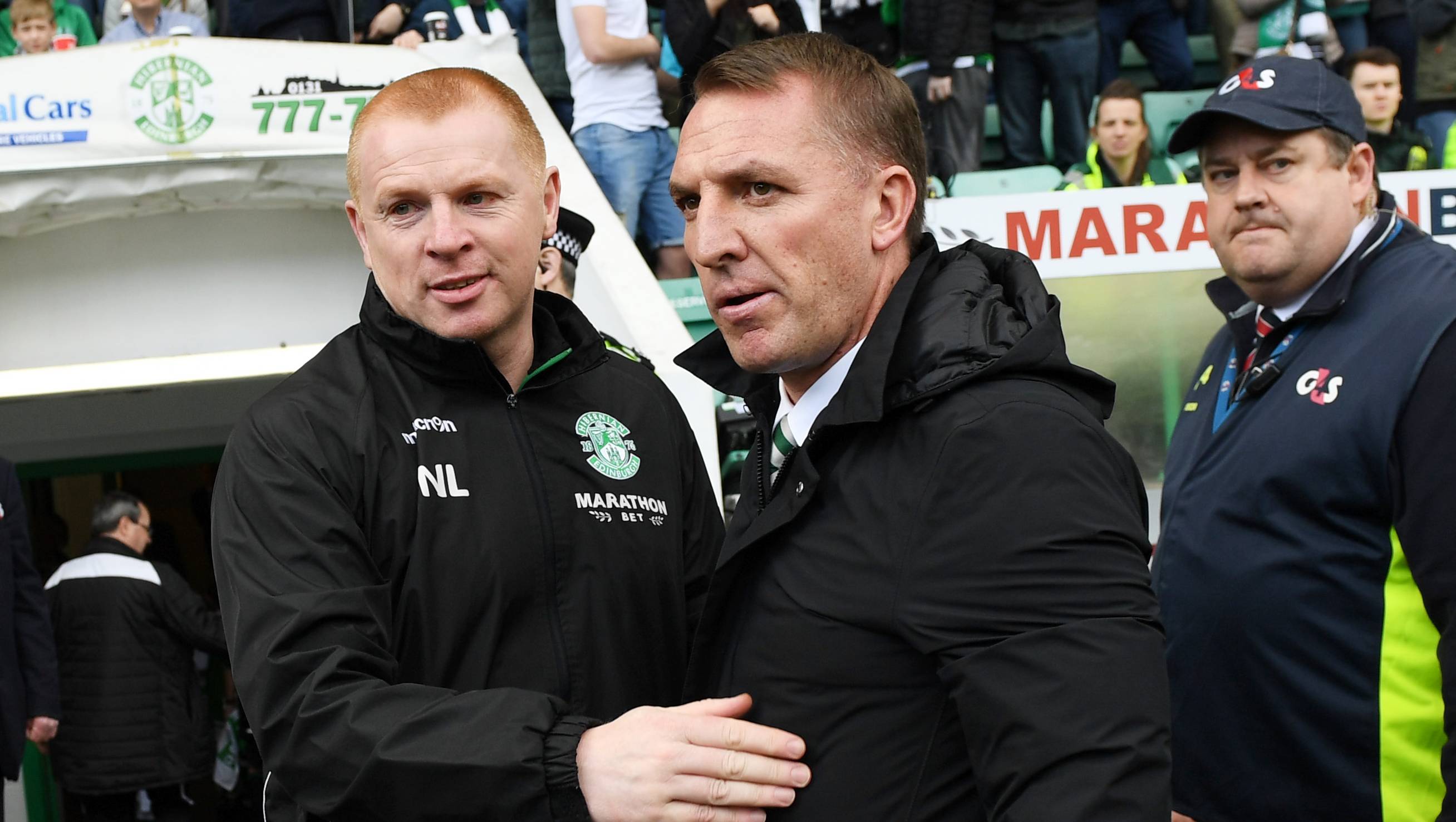 SNS Group
SNS GroupHis team’s football has been praised by Pep Guardiola, though cynics might note that Postecoglou’s Yokohama team was part of the same City Football Group as Manchester City.
Father figure for coaches
What’s particularly interesting, considering his status as a newcomer taking his first big job in Europe, is that the Australian is considered a bit of a father figure for coaches and managers at home.
A Sydney Morning Herald story explained how a generation of ambitious coaches had received advice or been given opportunities to advance their career by Postecoglou and raved about the knowledge they had gleaned.
One described a spell working under him as “My PhD in football”.
It instantly raises the question about who the new boss will surround himself with at Celtic. Since it’s public knowledge that Howe was given the nod to assemble his own backroom team, it’s unthinkable that Postecoglou wouldn’t have been able to negotiate the same freedom.
That could mean coaches known to him are brought in to help impose his ideas, or he may retain the institutional knowledge that’s held in John Kennedy and Gavin Strachan.
Huge rebuild ahead
Regardless of the coaching set-up, there’s no question marks over whether the squad will be transformed. The departure of some players, either returning after loans or leaving for other clubs, mean the team faces a substantial rebuild.
Even the most cursory glance at his squad will reveal that the goalkeeping situation needs resolved, both full-back positions need looked at, at least one centre-half is required. Scott Brown’s departure leaves a space in midfield, while Mo Elyounoussi has already left and Odsonne Edouard is likely to go, meaning the forward line is another priority.
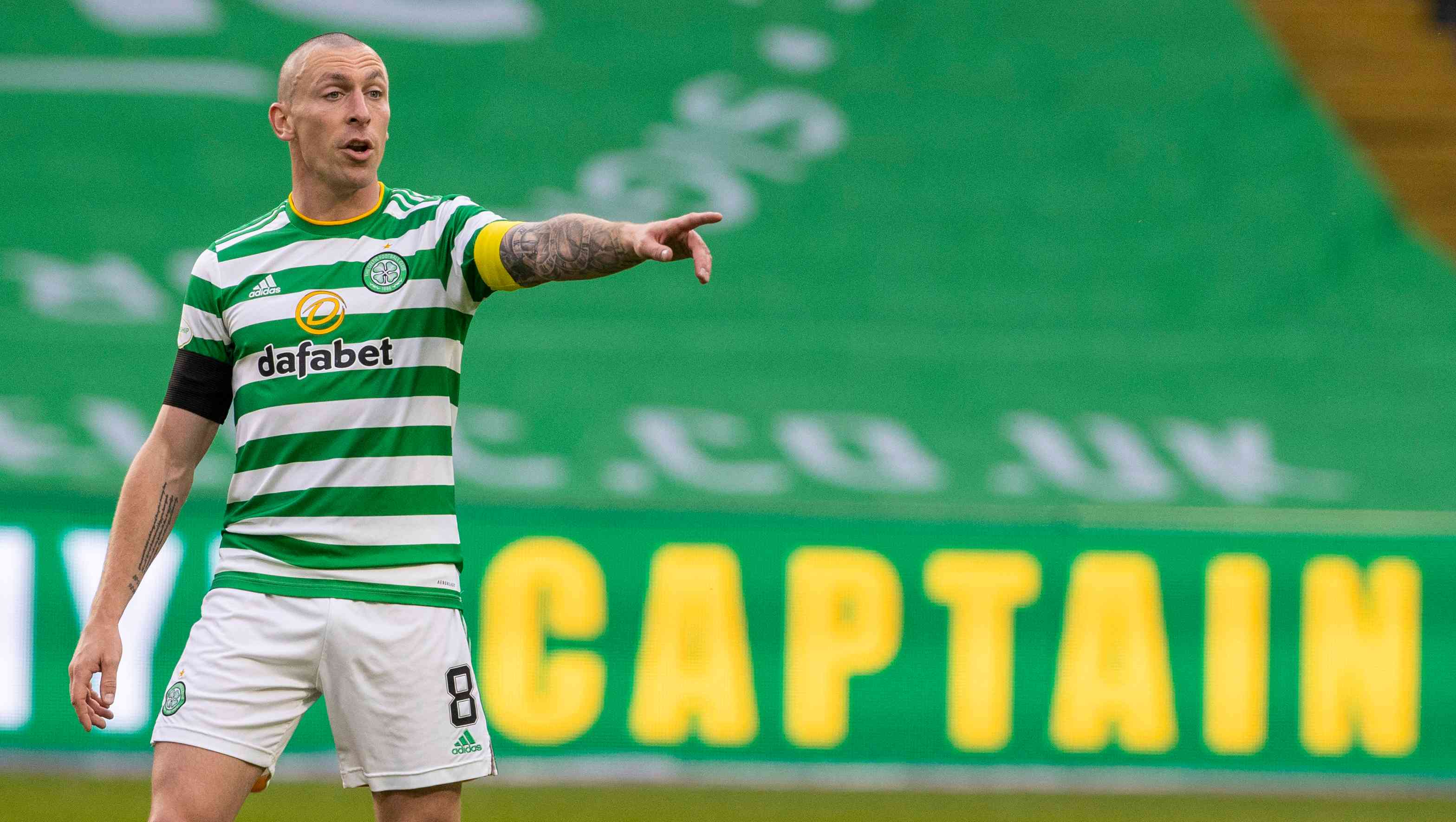 SNS Group
SNS GroupPostecoglou has a reputation for promoting youth players and lowering the average age of his teams but there is no way he can put together a Celtic team this summer from the products of the academy.
It’s essential that, having made a brave choice, Celtic are equally bold in their backing for the new man when it comes to the transfer market. And there isn’t much time.
Big challenges ahead
Pre-season training starts soon, while the first Champions League qualifier is six weeks away. Postecoglou’s work starts now but the complications of quarantine is a wrinkle he doesn’t need when looking to make a smooth start to working in Glasgow.
The task ahead of Postecoglou isn’t insignificant. He needs to rebuild a team, tackle European qualification and make a strong start to a domestic season where Rangers will be looking to build on a dominant showing last year.
Every step of the way, and with every change, the question will be “What would Eddie Howe have done?” – at least for a while.
This is not a continuity appointment. Whether it’s a season of success or failure, next season’s Celtic will bear little resemblance to the one that struggled through the last and it will have Postecoglou’s stamp on it.
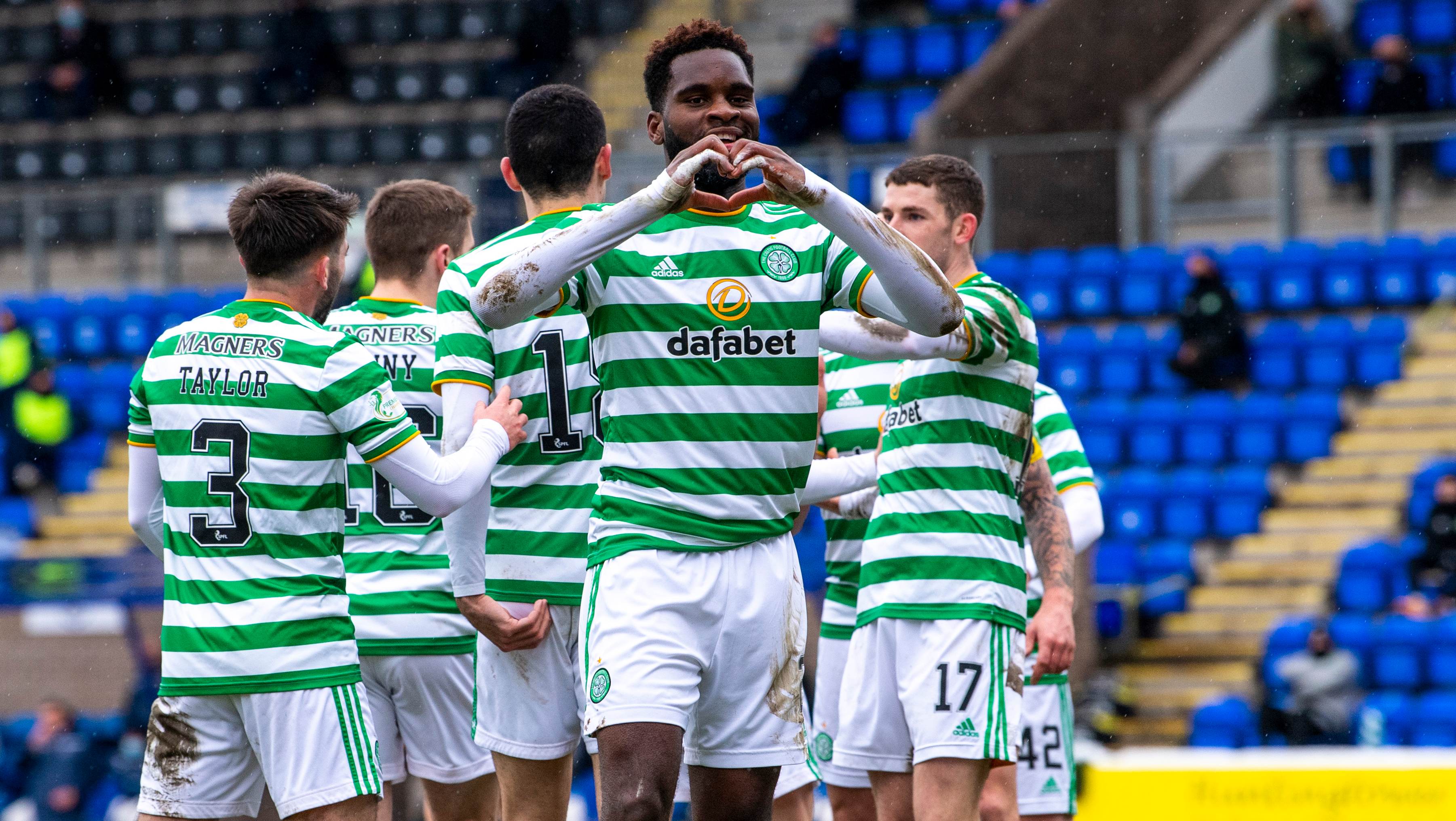 SNS Group
SNS GroupAn Australian documentary, The Age of Ange, has Postecoglou stating from the start that he believes in the possibility of making big changes.
“It’s what I love about sport, it’s what I love about life, is that no story is yet written,” he says. “There are lines in the pages but the ability to change where that goes is in your own hands.”
Celtic’s summer of change has effectively given their new manager a blank page. For the manager and the club, it’s now not about how the story started, it’s about how the season ends.

















